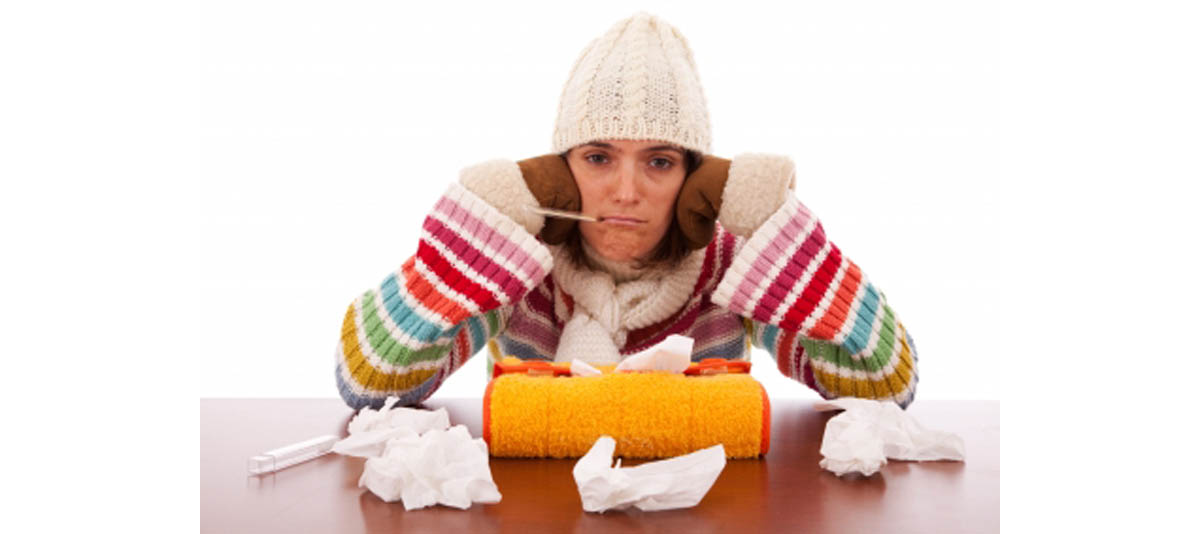With newer types of viruses and bacteria emerging in the recent times, it has become quite difficult to treat the infections caused by them. This projects the importance of protecting the human body from becoming infected.

The following sections cover in detail, individuals who are at higher risk of getting infected and some of the important measures to be observed in order to prevent infections, sickness and/or flu.
Individuals in some particular age groups and those with certain conditions are generally prone to develop infections or fall sick easily as their immune system is weakened. Such individuals who are at high risk include 1:
- Newborn babies
- Children between the age group of 6 months and 19 years
- Adults above 50 years of age
- Pregnant women
- Patients admitted in hospitals
- Elderly individuals admitted at long-term care facilities
- Individuals suffering from chronic diseases
- Individuals suffering from disorders of the immune system (such as AIDS) or those who are taking medications known to suppress the immune system
- Healthcare workers or household members caring for infected individuals
Hand Washing
 Hand washing at regular intervals is known to prevent infections in majority of the cases. Most of the microorganisms that are responsible for a variety of infections spread through air. These microorganisms tend to settle on surfaces such as tables, door knobs, hands and others. We commonly touch these surfaces and then tend to touch or nose or mouth quite frequently. This becomes an easy way for the harmful microorganisms to enter our body. Hence hand washing can effectively prevent this mode of spread of infections. Using alcohol based hand rubs are also effective.1, 2
Hand washing at regular intervals is known to prevent infections in majority of the cases. Most of the microorganisms that are responsible for a variety of infections spread through air. These microorganisms tend to settle on surfaces such as tables, door knobs, hands and others. We commonly touch these surfaces and then tend to touch or nose or mouth quite frequently. This becomes an easy way for the harmful microorganisms to enter our body. Hence hand washing can effectively prevent this mode of spread of infections. Using alcohol based hand rubs are also effective.1, 2 Washing the hands with soap or wiping the hands with an alcohol based hand rub is advised after3, 4:
- Using the restroom
- Handling trash, changing diapers
- Being exposed to someone who is ill
- Playing with a pet
- Covering your mouth with hand when sneezing or coughing
Coughing and Sneezing Etiquette
A sneeze can spray infection causing microorganisms to spread over a distance of about 3 feet. Coughing can also release some of these harmful microorganisms into the air. Once released into the air, microorganisms can affect a healthy individual who breathes in the infected air. Therefore, it is always advised to cover your mouth and nose when sneezing or coughing. Also take care not to sneeze or cough very close to an individual’s face, especially children. You can use tissues to cover your mouth and nose while sneezing and discard them properly after a single use. If you do not have a tissue you can cover your mouth with the bend of the elbow or hands. Wash your hands immediately if you have used them to cover the mouth and nose while sneezing.1, 3, 4Avoid Close Contact
 It is always better to avoid being in close contact with individuals who are ill. If you are suffering from any infection or suspect that you have caught the flu, you should avoid meeting others until you have recovered, so as to prevent spreading the virus.3, 4 Follow hand washing and other etiquettes mentioned above.
It is always better to avoid being in close contact with individuals who are ill. If you are suffering from any infection or suspect that you have caught the flu, you should avoid meeting others until you have recovered, so as to prevent spreading the virus.3, 4 Follow hand washing and other etiquettes mentioned above.
Eat and Drink Healthy Foods
Drink plenty of water. The body needs a good amount of water to remain hydrated. Common colds, flu and fever tend to dehydrate the body and make you feel weak. Fruit juices can also rehydrate the body, however avoid drinking too much of these. Fresh fruits and vegetables provide the body with the best natural nutrients that improve your immune system and thereby prevent being infected. Health and dietary supplements can supply the nutrients that may be deficient in the daily diet. Vitamin supplements are also known to boost the immune system and help fight infections. Several herbs and herbal supplements are now available over-the-counter that are known to boost the immune system and prevent many of common infections.4, 5Get Flu Shots, Vaccines and Take Antiviral Medicines
Flu shots are known to prevent seasonal influenza (the most common strains of the season) and should be taken especially if a person is in a high risk group. While it may not offer protection against the recent swine flu infection, it can still protect the body against seasonal influenza virus. A wide number of vaccinations are advised in newborn infants to prevent the occurrence of certain deadly infections such as chicken pox, mumps, measles, diphtheria, tetanus, hepatitis and others. Consult with a healthcare provider for further details about the vaccinations advised for newborn infants.6Antiviral medications are advised by the doctor if you are suspected or diagnosed to be suffering from viral infections. These medications help to suppress the virus and can also kill the virus in many instances.
Keep Yourself Updated
It is always better to know what is happening around you. Keep yourself updated about the situations such as rapid spread of infections, pandemics and guidelines being issued by your local authorities and the World Health Organization. Follow precautionary measures at home and in the work place to prevent yourself and others from getting infected.- 1. http://www.cdc.gov/flu/protect/preventing.htm
- 2. http://mayoclinic.com/health/hand-washing/hq00407
- 3. http://www.jointcommission.org/NR/rdonlyres/F76BC658-5554-4A82-89ED-67E36F033CF8/0/Infection_Control_Brochure.pdf
- 4. http://www.careforpa.org/2006/11/preventing_infections_the_hosp.html
- 5. http://www.naturopathydigest.com/archives/2006/aug/ballard.php
- 6. http://familydoctor.org/online/famdocen/home/healthy/vaccines/477.html


Your thoughts on this